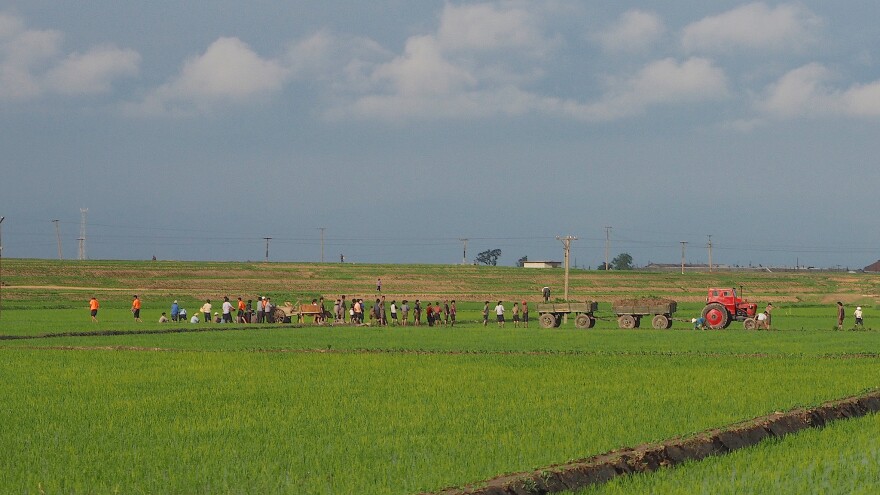From :
Texas A&M University has a new partner �� in North Korea. The nation’s only private university has reached out to ask for help teaching students how to grow food in a nation of persistent shortages and high food insecurity.
Pyongyang University of Science and Technology, which was founded and is mainly funded by American evangelical Christians, will receive from the Aggies.
, director of the Center on Conflict and Development at Texas A&M, is leading the effort. He says he hopes faculty and graduate students will eventually teach at the university for short periods of time.
The partnership developed almost six years ago when a graduate of Texas A&M, who is a leader in the World Evangelical Alliance, invited Price to visit North Korea.
While it may seem counterintuitive that the North Korean regime would be tolerant of a university funded by American religious groups, Price says that there are several reasons why it works.
“One of them is that the school is providing a high level of education and it is a link to the West that doesn’t otherwise exist,�� Price says. “They teach advanced science as well as English. And increasingly North Korea needs well-trained people who speak English in order to interface at least with the Europeans and other countries that are working or are associated with North Korea.��
Price says that organic agriculture has flourished in the country as a result of sanctions.
“It’s actually a bit like Cuba,�� he says. “Because of sanctions they have adapted organic means of agricultural production that are maybe less productive but at least they use fewer purchased inputs.��
The partnership won’t focus on agricultural policy. Rather, its focus will be on agricultural production, science and technology.
Price says that it takes “a bit of an adjustment�� getting used to how to behave as a foreigner in North Korea.
“They’re always looking over my shoulder, that's for sure,�� he says.
Despite the challenges that come with working there, he doesn’t rule out the idea that the country could one day become agriculturally self-sufficient.
“I’m an optimist, no matter where I work,�� he says. “We persist in the belief that there will be and can be agricultural progress and I believe that of North Korea, just like other places.��

